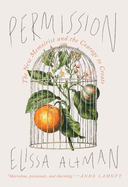
In Permission, memoirist Elissa Altman offers heartening advice on writing about traumatic family history.
Altman (Motherland) and her father, Cy, shared a "non-secret secret": his mother abandoned him when he was three years old. He and his sister spent time in an orphanage and foster home. Although their mother did return home three years later, permanent psychological damage had been done. Cy's dreams of going to university and becoming a poet would remain unfulfilled, as well as his desire to write the story of his mother leaving, because he "had been warned not to." Altman, like her father, felt that the secret "was the story that changed everything I, too, thought," and she was caught in "an intergenerational sin of omission." For divulging the abandonment in her first memoir, Altman became persona non grata in her family. "We did not give you permission. It was not your story to tell. You don't own it," a cousin fumed to her.
While acknowledging the emotional pain of being cut out of her family, Altman responds with a defiant mantra she recites to her students: "If this particular story touched you directly, you have every right to write it." To illustrate, she draws on a stunning roll call of autobiographical works, such as Barry Lopez coming to terms with childhood sexual molestation. It is worth taking the risk to recount traumatic memories, Altman argues, because it defuses shame.
Practical chapters on giving oneself permission to write by eliminating distractions, devoting time, and developing rituals will be particularly useful for aspiring memoirists. Those captivated by family history will also find much of interest. --Rebecca Foster, freelance reviewer, proofreader, and blogger at Bookish Beck

